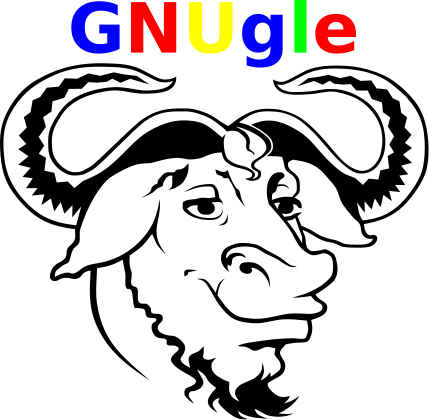| Google is 20, GNU is 35; Why No GNUgle? |
| Written by Mike James | |||
| Thursday, 27 September 2018 | |||
|
This week 20 years ago Google was born in a garage, so fitting in with the Silicon Valley creation story; 35 years ago the GNU open source project was announced. Two great, but very different, events. Time to look back and ask why? The GNU movement was started to create an open source version of Unix. At the time its rationale seemed obvious and desirable. In the academic world there was a real problem in, for example, teaching operating systems. Windows was closed and proprietary and Unix was just going through some copyright upheavals that made it a risky choice for teaching. The only real alternative was Minix, which also had copyright problems. The GNU movement would give academics what they wanted - software they could use without worrying about commercial concerns. The GNU project was, and is, a great success - even if it didn't, and still hasn't, delivered an open source version of Unix; that was achieved by Linus Torvalds and his Linux project. The GNU project did, however, deliver the GCC - GNU Compiler Collection - and many other tools that were needed to create Linux and are still needed today to make use of Linux. It is why the GNU people still insist that we call Linux "GNU Linux". What did it take to set up the GNU project? A few desktop machines and a campaigning system that would get people to work on this fairly obvious project were all that was required. A free and open source Unix - what's not to like - and more importantly, with obvious benefits, who wouldn't work on it if they could? Now consider Google. When Larry Page and Sergey Brin began to think about how to measure the importance of web pages, we were all using things like Yahoo and portals to find what was interesting. Basically these were websites that created indexes of web pages on different topics. In all cases these index pages were human curated. Yahoo, for example, used people to index the web. At that time, the idea that we might need some sort of automatic indexing wasn't a common one. In fact, if you had met Page and Brin back then, you might have had a list of questions about their enterprise which included "why?" and "are you saying page rank is as good as a human curated index?" and... well you get the idea. Another really big question would have been how exactly they planned to make any money on their enterprise? At the time the idea that information was money wasn't as widely accepted, or as obvious, as you might think. Google Doodle, well video really, celebrating 20 years. All this is interesting, but suppose a similar GNU moment occurred and some open source believer had decided to create what, from today's perspective, was so obviously necessary - a search engine. They could have as, while the Page Rank algorthm is patented by Stanford University and licenced to Google, Page Rank isn't the only way to do the job. Indeed it is believed that of all the signals that Google uses as to what makes an important page, Page Rank isn't given heavy weighting. In other words, it would have been possible and still is possible to think up a ranking algorithm that does not infringe the patent. So why isn't there a GNUgle?
A first attempt at a Google machine - yes Lego. A big factor is that Google came out of nowhere and built something we didn't really know we needed. How can you make a pitch for something that isn't obviously better than what there already is. A second big factor is that Google's initial success was increased by the amazing response time the search had. Google was fast. Most of this speed came, and still comes, from custom hardware and clever ways of making use of said hardware. The first search engine was written in Java and Python and ran on a number of Sun and Linux machines. It consumed nearly half of Stanford's network bandwidth. Investment, $100,000 closely followed by $25 million, allowed Google to move out of the lab into a garage and to build more and more hardware.
A more convincing attempt at a Google machine. Would this have been possible for an open source project? Obviously not. Even today the big weakness of open source is that it cannot move to the cloud because it needs lots and lots of money to do that. Take, for example, Firefox compared to Chrome. Both are open source in some sense of the term, but Chrome offers a range of cloud assistants - notably Translate and single sign-on to a large range of other services, Gmail, Drive, Photos etc. Firefox, on the other hand, struggles to keep up with a profile service for the browser user and, despite attempts to create one, there is no Firefox translate. Put simply, open source cannot make the transition to services unless someone commercializes the code. Take, for example, git. How many of us would use git if it wasn't for GitHub? So no not-for-profit open source search, and as for an open source alternative to Facebook - forget it unless you can find a philanthropist with very very deep pockets. So a toast to GNUgle the open source alternative that never was, and in all probability never can be.
Unless, of course, there is an idea we are currently missing?
More InformationInside Google’s original garage, 1998-style Related ArticlesGNU Manifesto Published Thirty Years Ago RankBrain - AI Comes To Google Search Google Founders Win New Test-of-Time Award Hummingbird - A New Google Search Algorithm Google Search Goes Semantic - The Knowledge Graph Google Needs a New Search Algorithm To be informed about new articles on I Programmer, sign up for our weekly newsletter, subscribe to the RSS feed and follow us on Twitter, Facebook or Linkedin.
Comments
or email your comment to: comments@i-programmer.info
|
|||
| Last Updated ( Thursday, 27 September 2018 ) |




